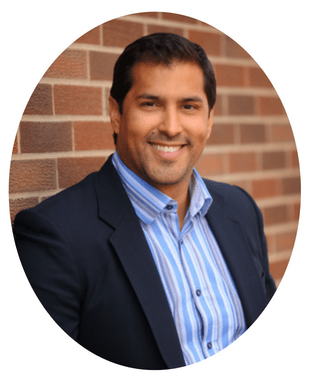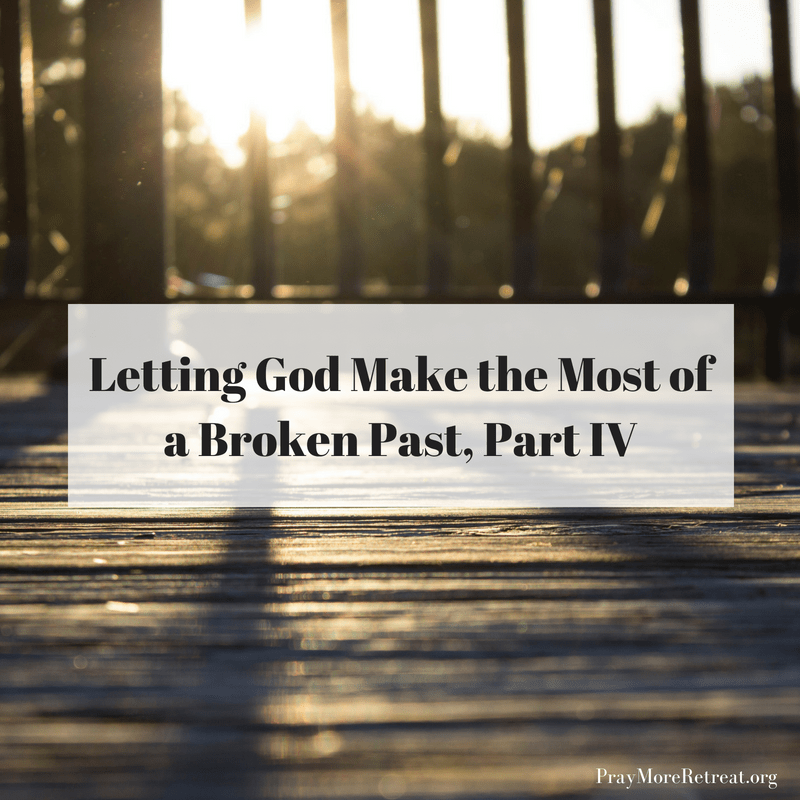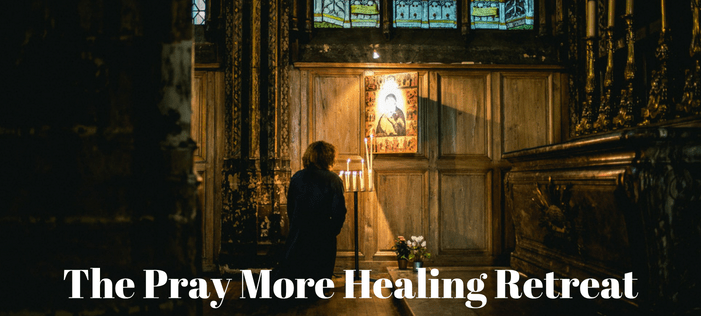Summary
In this part of Mario’s talk, he discusses how taking concrete steps and offering up his difficulties helped him in his healing journey. He encourages us to stay in the sacraments especially going to confession that will help us keep our relationship with the Lord.
Thank you for watching and participating in this retreat!
Not Registered, yet? Don’t miss the rest of the talks! Register for the Pray More Retreat!
Downloads
Audio MP3
Click here to download audio file.
Printable Study Guide PDF
Click here to download the printable study guide.
Printable Transcript PDF
Click here to download the transcript of the video presentation.
Reflective Study Guide Questions
“Nothing, however little, that is suffered for God’s sake can pass without merit in God’s sight.”
Thomas à Kempis
- We all have suffering in our lives, sometimes the suffering is really big and tough and sometimes it is smaller and more manageable. Do you have an experience of “offering it up” in regards to your suffering? If so, what was the circumstance and how did you, “offer if up”? If not, is there something – some kind of suffering – in your life that you could, “offer up” to God?
- As the quote above says, no amount of suffering, big or small, goes unseen by God. Have you ever had an experience of sanctification, a feeling of peace, or a feeling of close dependence on God during difficult times of trial in your life? If so, what was that experience?
- Mario mentioned the phrase, “Let go and let God” several times. What is your personal understanding of this phrase? Have you ever tried to give your suffering to God to handle before? If not, is there something that is preventing you from believing that God is trustworthy, powerful and generous enough that He would answer your prayers?
When you are down, depressed, feeling lost, hurting or suffering, do you seek God first or last? Do you focus on your burden or do you ask God for guidance and consolation? Next time you feel overburdened, ask the Blessed mother to pray with you. Ask her to heal your hurting heart with her immaculate heart.
Text: Letting God Making the Most of A Broken Past, Part IV
Hi, I’m Mario St. Francis, and welcome back to Letting God Make the Most of a Broken Past. Let us bow our heads and pray for this portion of our retreat.
Opening Prayer
In the name of the Father, Son, and Holy Spirit. Amen. Oh Lord, continue to guide us with Your grace, the intercession of all the angels and saints, all holy men and women. To guide us, to turn the intercession of the agents of change, Your saints, the Blessed Mother, the angels, that they may help us in our journey through life, through the struggles, to carry our cross, and to let You, to let the Father, Son, and Holy Spirit make the most with our collaboration of our past, for our sanctification and the good of others. We ask this in the name of Jesus Christ, Your Son, our Lord. In the name of the Father, Son, and Holy Spirit. Amen.
“Offer it Up”
So, I’ve shared with you already parts of my story, and the intricacies of how I dealt with things had some common denominators. Had some things that were basic kind of roadmaps to success, seeds of alleviation of trials. There is this one phrase that I would hear through suffering – and maybe you’ve heard it, maybe you’ve said it, maybe you have a t-shirt, maybe it’s a bumper sticker, maybe it’s all over your social media – but it’s a common thing I ran into, where people would say “Offer it up.” And, you know, having studied theology and philosophy and catechetics, like, I understood, you know, “Offer it up, offer it up.”
But there’s so many people who, I think, hear that and don’t know what that means. And I really like analogies. If you ever have gone to my talks or conferences, I use a lot of analogies, and I don’t have them written down, they just come to me. And one of them is that offering up a suffering – and this is a whole talk and a book in and of itself, but let me summarize it in a little nugget of information for you. So, if you have a… let’s say a rock, although… let’s say a piece of wood, a thorny piece of wood that you’re dealing with in your life. It hurts, it’s got its pain, you feel it, it’s heavy, it’s solid. To say to offer it up doesn’t make it go away, but you could express to those around you what it feels like, what it looks like.
And, basically, it’s somewhat of a mystery, what it is you’re going through, and we do need to reach out for help for many things in our lives and what we’re going through. But there’s certain aspects of it where, for example, you could just complain and kind of gripe and moan about it. And that takes a certain amount of human energy, let’s say, and just kind of blows it out, and you’re diffusing some of what you’re being given. Let’s say you’re taking shavings of it and kind of giving it out, like “Hey man, this is a pain, and I don’t like this person. Oh, you know, woe is me,” and you’re really just drilling deep down and “Ugh, this thorny brick that I have, it’s so frustrating.” And kind of misery loves company, expressing it.
Well, there is this… the idea of offering it up is to take some of these – it could be all of them but, you know, I’m not going to, you know, assume that you’re Mother Teresa and you can do it to every aspect of the suffering – but it’s to take some, take one piece of it, take one complaint at a time. and instead of just kind of spewing it, venting it, and just kind of regurgitating it out on other people, it’s to kind of silent, quietly take that and put it into, oh, I don’t know, let’s just call it the chimney, you know, to heaven, where you’re going to let that kind of burn up in a fire and just kind of let go and let God.
Just take that little suffering. It doesn’t take the headache away, it doesn’t take away the divorce, it doesn’t take away the separation, or the, you know, the rebellious child, it doesn’t take away the pain or the frustration, emotional, physical that you’re dealing with necessarily. It can, but you let it kind of burn up, and that smoke rise to heaven, and say “God, would You receive this smoke?” I mean, I could really, you know, blow it out of my tailpipe in a sense and pollute the world, right, verbally, and just kind of with, you know, well, we’d say negative vibes, you know, negative talk.
You take that and say “Lord, take this negativity, this headache, this pain, this frustration, this, you know, this challenge of mine.” And He can take that and say “Mario could have really used this and shared it with the world, but he’s sharing it with Me.” And God, in a sense, can take that as a gift, He can put a nice little bow on it, make it into a paper airplane perhaps, a gift, and He can send that as a gift, He can put grace in it, and sort of send it to somebody else’s situation somewhere in the world, so that perhaps somebody who is depressed and about to cut themselves, God’s grace can come into their lives because you offered up your suffering.
And now they’re receiving on your behalf – you gave the gift to God, and now it’s God’s gift, but you’ve helped, and you become this spiritual missionary. You become like this spiritual ninja. It’s how I see that nuns and, you know, priests, especially those that are cloistered, but anybody, the lady can offer up things where you could otherwise, you know, shoot it out to doctors, and nurses, and your children, and your spouse, and your significant other, and your friends at the gym, and it just becomes chit chat and idle frustration. And God can do great things with that.
And, again, it’s just a little summary, it’s a little nugget, but to offer something up is to not always tell people exactly how bad the headache is, or the frustration in your life is. Maybe every other time that you’d want to say it you would say it, but the other times you offer it to God. You can give it to the intercession of the Blessed Virgin Mary, and she can take it and wrap it up in her blue mantle. I love blue, if you haven’t noticed, because of our Blessed Mother.
And you can really offer up a lot of great heavenly arrows in a sense, or paper airplanes, or whatever you want to call it, and do good in the world, and truly transform lives and save souls, save lives possibly, because you are an intercessor. This is part of our role as a baptized Christian, you know. You’re baptized into Jesus’ 3-fold ministry of priest, prophet, and king. A priest takes things and separates them for a holy cause. Well, you’re being a priest in the sense of a layperson, just in, you know, a non-priestly, not a nun, not a consecrated virgin, and taking your baptismal priestliness and creating a gift out of it. It’s a beautiful thing.
Doing Concrete Steps
So, I did very concrete things though. Despite my trials and the sufferings and tribulations, I looked for resources. In the marital situation, looking for counseling and saying “You know, hey, I’m under the impression that I have a sacramental bond here.” I have to live that no matter how many ways to Sunday. It would be more convenient for me to just kind of convince myself that it isn’t. I mean, I made a sworn oath in the church, and unless the church somehow investigates it and says that that was a non-oath, a non-binding oath, which is, in a sense, that’s a really quick way to talk about the annulment process, where they found a flaw in the actual giving of the bond or the oath, that you were incapable of it.
I sought resources, I found web communities, I found some of the top counselors and coaches in the world, or particularly in the United States, who could do interventions, whether it was online, phone call, or live. I was looking for every resource. Prayer ministries, intercessory prayer, putting myself into counseling, trying and finding out different counsellings, you know, accountability groups, something like a 12-step group. There’s grief, there’s loss, there’s… in your parish there can be groups for people that are going through grief and challenges and difficulties. Spiritual devotions. There’s so many resources that exist, and I started knocking on those doors.
I felt crazy, and you might feel crazy, and I went through what I would call the yoyo effect. I had a love-hate relationship with all of it. I was frustrated with… I loved the church, but then I got frustrated with the process of the church trying to help that situation. I had, you know, God bless the people that gave me advice. I would ask clergy, I would ask married couples, I would ask friends, and really good, well- meaning Christians and Catholics for advice, and sometimes you would just get really poor advice, a lot of the advice that doesn’t support, you know, our belief in marriage despite the fact that they share the same faith with us. And that can be really difficult and challenging, and people, I’m pretty sure, lose their faith just over that situation.
Crosses that we bear can be such an excuse for us to walk away. But if you look at the broader picture of if you know and truly understand and believe that the church, despite its politics, despite its human – you know, there’s humans involved, so you’re guaranteed that there’s going to be flaws, right – that there is this mystical gift, this miracle that is the church, the sacraments. And it’s not just “Oh, me in my private room, I can be church.” You are an aspect of the church, but there is truly something in the church, and that one holy Catholic in Apostolic Church, men who have received that apostolic succession, you know, that laying on of hands, the Eucharist confession. There’s something so unique there that despite feeling crazy and yo-yo frustrated with it, I couldn’t leave it.
And not leaving it can have a lot of different forms, right. I could potentially be frustrated with my experience in one parish and, you know, look to nurture my faith life in another parish, knowing that that’s not breaking some major rule. While we do encourage obedience and submission, even at that kind of parish level, and to not just be sort of a cafeteria Catholic, jumping around for the place that makes you feel good, there is a certain aspect of us where you don’t want to put yourself in a situation where you’re kind of getting worse. And I did that. I would find different ways of being in the church, being a faithful Catholic. And people can really spin that a thousand ways to Sunday, I won’t get into it now.
Stay in the Sacraments
But stay in the church. Stay in the sacraments. Confession. Confession has its own secular kind of studies showing how healthy for the mind and for the kind of secular soul, but also the spiritual soul, just going to confession, and how the grace helps nurture us to carry that cross, you know. I talked about that CrossFit. So, no matter what it is that you can deal with, and how bad advice is, and the surroundings around us, don’t give up. Don’t give in.
I’ve got to wrap up this portion of our retreat. Please stay tuned, and please continue on the journey of whatever it is that you’re going on with Christ.
Closing Prayer
In the name of the Father, the Son, and the Holy Spirit. Amen. Lord, I offer You, I want to share so much and, you know, have an online university of what I’ve gone through in my own life, and the advice and experiences that I’ve had Lord. But I give it all to You, to nurture and enrich and enflame the hearts of all those listening to do Your will better and better every day. I ask this in the name of Jesus Christ, Your Son, our Lord. Amen. In the name of the Father, Son, and the Holy Spirit. Amen.
About Mario St. Francis Herrera

Mario St. Francis Herrera B.A., M.T.P.T. is a husband, father, speaker, model, actor, producer and is currently becoming a certified personal development facilitator and trainer, and he’s based out of the Washington DC area. Since experiencing a radical call to conversion at the age of 24, Mario has been a highly sought-after Catholic Speaker around the world most known for his conversion story from a “Hollywood to Holy-wood”. A young man without faith turned overnight into a passionate Eucharist-loving daily Mass-attending proud Roman Catholic Christian. After experiencing his first World Youth Day in Toronto, 2002, he attended Franciscan University of Steubenville studying Catechetics, Philosophy, Theology and TV/Film. While there he was offered the opportunity to work for the manager of the most notable Catholic actor in Hollywood Jim Caviezel (Passion of the Christ). Leaving Steubenville, he spent a decade working as a producer of Catholic media projects and speaking as a missionary on every continent, mostly to youth and young adults.
In 2012 he left his final long term Mission in India and settled back in the US. He finished his undergraduate in Texas, graduating Magna Cum Laude from the Mexican American Catholic College with a degree in Pastoral Ministry. While in Texas, he met his wife and they have two beautiful young children and look forward to growing that family.

